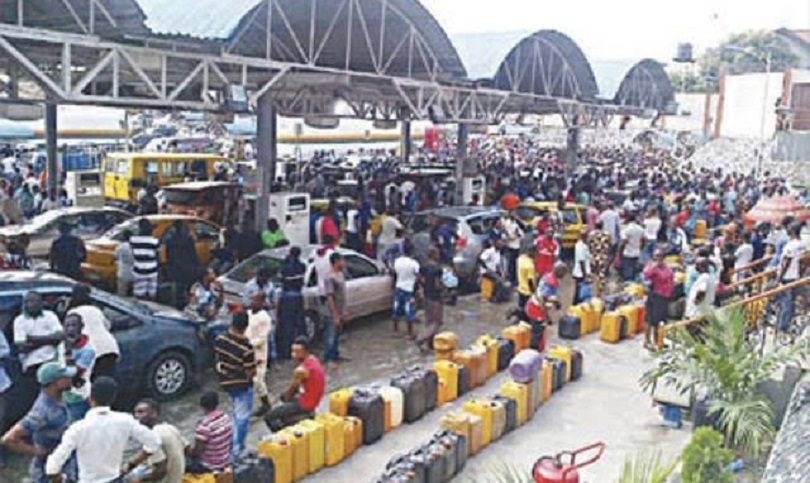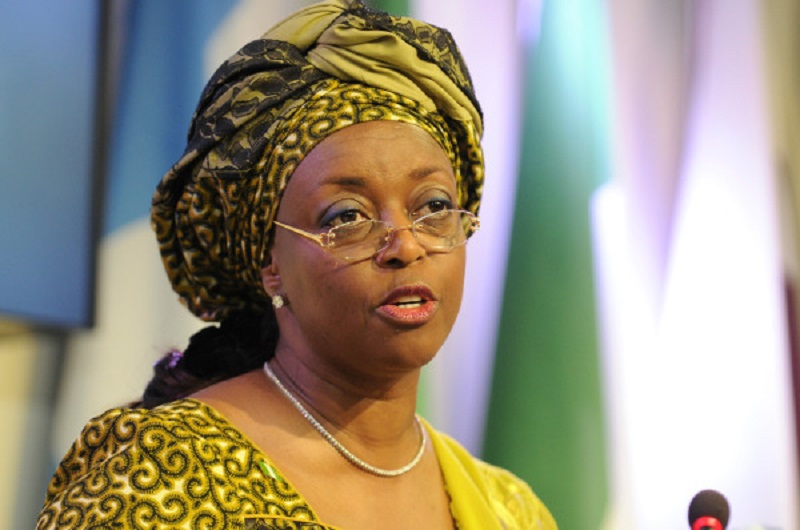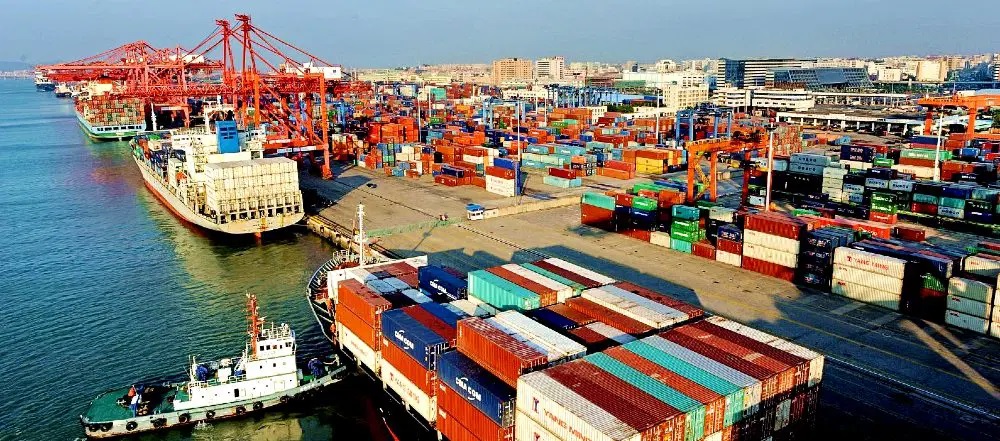General
Belgium Assures Nigeria, Others Quality Petrol, Diesel

By Adedapo Adesanya
One of Nigeria’s key sources of imports for petrol and diesel, Belgium, is tightening regulations to boost quality fuels to Nigeria and other West African countries.
Belgium, a major exporter of petrol and other fuels to Nigeria, is following the Netherlands in tightening environmental rules, officials told Reuters.
The Amsterdam-Rotterdam-Antwerp (ARA) hub is the world’s leading petrol exporting region and hosts some of Europe’s largest oil refineries including plants operated by TotalEnergies and Exxon Mobil.
Despite being Africa’s largest crude oil producer, moribund infrastructure and underinvestment makes Nigeria dependent on importing its fuels.
In February 2022, a large consignment of imported petrol had to be withdrawn from the market in Nigeria, after it was found to have excessive levels of methanol, which was causing engine damage in vehicles.
The development raised serious concerns over the regulation of fuel standards in Nigeria. Specifically, the fuel was imported from Antwerp in Belgium, according to the Nigerian National Petroleum Company (NNPC) Limited.
In 2021, Nigeria imported $11.3 billion in refined petroleum, becoming the 18th largest importer of refined petroleum in the world. In the same year, refined petroleum was the 1st most imported product in Nigeria.
Nigeria’s imports of refined petrol during the year were: Netherlands ($3.62 billion), Belgium ($1.78 billion), Norway ($1.2 billion), India ($992 million), and the United Kingdom ($760 million).
However, after the Netherlands introduced legislation in April to tighten the specification for its road fuel exports, Belgium’s environment and energy ministries are now planning to introduce their own draft rules to tighten the quality of exported fuels.
This would further reduce northern Europe’s role in supplying Africa with dirtier petrol and diesel, which have been proven to cause significant health problems.
However, this may also lead to rising costs for poorer nations.
The office of Minister of Climate, the Environment, Sustainable Development and Green Deal, Ms Zakia Khattabi is working with Energy Minister, Ms Tinne Van der Straeten to prepare a royal decree to introduce the law, a spokesperson for Mr Khattabi told Reuters.
“It is evident that we must join forces and combine our expertise to halt the export of toxic fuels to third-party nations,” Ms Van der Straeten said in a statement.
The draft is expected to be ready within two weeks and, barring major political hurdles could become law by February next year, the environment ministry said.
Nigeria has in recent years cut sulphur content allowances for imported fuels.
However, its current specification for petrol remains at 150 sulphur parts per million (ppm), three times above Belgium’s proposed limits. The maximum allowed sulphur content for gasoline sold in the European Union is 10 ppm.
“There can be no double standards when it comes to products that pose environmental and health risks,” Van der Straeten said.
The Belgian government began researching the legislation in part due to concerns that “part of the export of these fuels from the Netherlands would come to Belgium”, Ms Khattabi’s spokesperson, Mr Mathias Bienstman said.
The Netherlands’ share of Northwest Europe’s exports to West Africa fell from around 47 per cent in the first quarter to just 15 per cent in October, according to tracking data from analytics firm Vortexa, while Belgium’s share rose from 34 per cent in the first quarter to 65 per cent last month.
The earliest the decree could be passed in February, the ministries hope, but the timeline will depend on the extent to which collaboration with the wider Belgian federal government, advisory council, and European Union is required.
It was reported that while an implementation date has not yet been decided, it usually comes six months after the publication of a royal decree, Mr Bienstman said.
General
Alison-Madueke Denies Wrong Doing as Prosecutors Present Evidence

By Adedapo Adesanya
Embattled former Nigerian Minister of Petroleum, Mrs Diezani Alison-Madueke, returned to court in London on Monday, denying wrongdoing as prosecutors presented evidence for an alleged bribery.
It was recently reported that Mrs Alison-Madueke, once president of the Organisation of the Petroleum Exporting Countries (OPEC), received cash and luxury benefits in exchange for influence over oil and gas contracts when she was a minister in the cabinet of former President Goodluck Jonathan.
She has denied the claims repeatedly.
In the latest development in her trial, jurors in the British court today heard testimony from a luxury furnishings retailer and a former housekeeper, as prosecutors sought to show how high-end purchases and property use were allegedly routed through intermediaries.
The 65-year-old is accused of multiple bribery counts stemming from a years-long investigation.
The alleged offences occurred between 2011 and 2015, when she was Nigeria’s oil minister but maintained a UK address.
The UK National Crime Agency (NCA), which targets international and serious and organised crime, accused her of receiving the bribes in Britain.
Mrs Alison-Madueke is accused of accepting “financial or other advantages” from individuals linked to the Atlantic Energy and SPOG Petrochemical groups.
Both companies secured contracts with the then Nigerian National Petroleum Corporation (NNPC) or its subsidiaries, according to the prosecution.
The former minister is also said to have received £100,000 ($137,000) in cash, chauffeur-driven cars, a private jet flight to Nigeria and refurbishment work and staff costs at several London properties.
Other counts allege she received school fees for her son, products from high-end shops such as London’s Harrods department store and Louis Vuitton, and further private jet flights.
Mrs Alison-Madueke has been involved in numerous legal cases globally, including in the United States.
She has been on bail in Britain since she was arrested in October 2015.
In 2023, she was formally charged with accepting bribes, which she has denied.
General
Egbin Power Unveils Tech Empowerment Scheme for Youth Employability, Others

By Modupe Gbadeyanka
An initiative designed to encourage entrepreneurship, expand access to opportunities in the digital economy, and improve the employability of young people in its host communities has been launched by Egbin Power Plc.
The tech-based empowerment programme will equip young persons from Egbin, Ijede and Ipakan areas of Lagos State with digital skills.
The chief executive of the power-generating firm, Mr Mokhtar Bounour, described the initiative as part of the company’s Personal Corporate Social Responsibility (PCSR) efforts, reflecting its commitment to inclusive and sustainable development, adding that its responsibilities extend beyond electricity generation to empowering people in surrounding communities.
“In today’s digital age, technology is no longer optional but a critical driver of economic inclusion and growth,” Mr Bounour said, noting that deliberate interventions were needed to bridge digital gaps and prevent uneven development.
He explained that when communities are excluded from the digital economy, development becomes uneven and unsustainable, reinforcing the need for deliberate interventions that bridge digital gaps.
He pointed out that, “The Empowerment Programme is designed to address this gap by providing young people in Egbin, Ijede and Ipakan with access to practical and in-demand digital skills that can improve employability, foster entrepreneurship, and create new economic opportunities within their communities.”
The first cohort brings together beneficiaries from the three communities for structured training in ICT fundamentals, graphic design, full-stack web development, digital marketing, cybersecurity and data analytics. The programme combines classroom instruction with hands-on learning.
Participants were selected through a screening process that assessed curiosity, determination and willingness to learn, the company said. Beyond technical training, the programme also includes workplace skills such as ethics, problem-solving, collaboration, professionalism and digital responsibility.
Mr Bounour urged beneficiaries to act as ambassadors of the initiative and demonstrate the values of integrity, discipline and service, saying their progress would serve as evidence that strategic corporate responsibility can deliver measurable impact.
He encouraged participants to recognise their broader responsibility to their communities, urging them to learn with character, pay their knowledge forward, mentor others, and use their skills to solve real local problems. He noted that the true legacy of the programme will be the ripple effects it creates through shared success and communal growth.
The launch of the Tech Empowerment Programme underscores Egbin Power’s continued commitment to sustainable community development, trust-building, and long-term value creation.
The company reaffirmed its dedication to investing strategically in people, strengthening host communities, and contributing meaningfully to Nigeria’s digital and economic future.
General
NPA Working to Eliminate Manual Bottlenecks, Synchronise Operations Across Seaports

By Adedapo Adesanya
The managing director of the Nigerian Ports Authority (NPA), Mr Abubakar Dantsoho, has said the organisation is in collaboration with the International Maritime Organisation (IMO) to deploy the Port Community System (PCS) will eliminate manual bottlenecks and synchronise operations across Nigeria’s seaports.
Mr Dantsoho disclosed this at a recent three-day high-level stakeholder engagement in Lagos titled Achieving a 7-day Cargo Dwell Time, organised by the Presidential Enabling Business Environment Council (PEBEC) in collaboration with the NPA.
The engagement convened the Ports and Customs Efficiency Committee (PCEC) under the Business Environment Enhancement Programme Accelerator (BEEPA) framework, focusing on streamlining port processes to improve efficiency and ease of doing business.
According to the NPA boss, the PCS will serve as the digital backbone of the National Single Window, enabling seamless information exchange among port stakeholders and reducing delays caused by manual documentation.
On her part, the director-general of PEBEC, Mrs Zahrah Mustapha, said the session was designed to go beyond identifying challenges and focus on implementing long-overdue practical solutions.
“Nigeria loses significantly every day due to operational inefficiencies,” Mrs Mustapha said. “These are not just numbers; they represent missed opportunities, jobs not created, and delayed economic growth. This reform is about resilience and unlocking the nation’s economic potential.”
She added that the initiative brings together government regulators and private-sector stakeholders to promote transparency and accountability, with the ultimate objective of reducing cargo dwell time and improving vessel turnaround time.
Recall that the NPA recorded a 100 per cent success rate in PEBEC reforms, ranking fifth among government agencies in 2025 with an 84.2 per cent compliance rating.
Outcomes from the stakeholder engagement are expected to be implemented in the coming months. By addressing operational gaps identified during port inspections, the NPA and PEBEC aim to build a more competitive maritime environment that attracts investment and facilitates seamless trade.
-

 Feature/OPED6 years ago
Feature/OPED6 years agoDavos was Different this year
-
Travel/Tourism9 years ago
Lagos Seals Western Lodge Hotel In Ikorodu
-

 Showbiz3 years ago
Showbiz3 years agoEstranged Lover Releases Videos of Empress Njamah Bathing
-

 Banking8 years ago
Banking8 years agoSort Codes of GTBank Branches in Nigeria
-

 Economy3 years ago
Economy3 years agoSubsidy Removal: CNG at N130 Per Litre Cheaper Than Petrol—IPMAN
-

 Banking3 years ago
Banking3 years agoSort Codes of UBA Branches in Nigeria
-

 Banking3 years ago
Banking3 years agoFirst Bank Announces Planned Downtime
-

 Sports3 years ago
Sports3 years agoHighest Paid Nigerian Footballer – How Much Do Nigerian Footballers Earn












